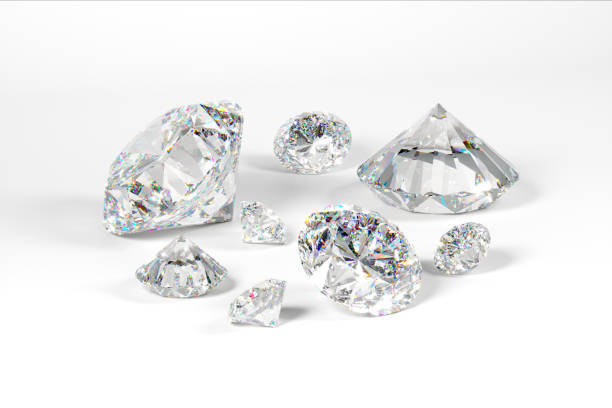How Jewelry Appraisal Helps Buyers and Sellers All Entries

Getting a professional jewelry appraisal is part of insuring valuable belongings, as well as selling rings, necklaces and other jewels on the market. Either way an appraisal gives you an idea of the jewel's quality and value. Here are important points to know about appraisals and how they help jewelry owners, buyers and sellers.
Actual Cash Value (ACV)
In the insurance world the term "actual cash value" is distinguished from "replacement value" when it comes to filing claims for lost or damaged jewelry. ACV refers to the jewelry's value minus depreciation. It reflects the payout amount for repairing or replacing the item when you file an insurance claim.
Replacement Cost Value (RCV)
Another type of value to understand for insurance purposes is RCV, which is the cost of replacing the same jewel if it were lost or stolen. It does not take depreciation into account. An insurance policy may cover reimbursement for RCV or ACV, depending on what the policy specifically states.
Replacement cost value takes economic inflation into account. Certain older jewels that may be considered "irreplaceable" due to the owner's sentimental value may be difficult to appraise and require special insurance coverage.
Fair Market Value (FMV)
The fair market value of a jewel reflects its uniqueness and current condition, which directly impacts pricing. This value is closer to the average selling price you would expect between willing and informed buyers and sellers. Fair market value relates to the common market that you can find among jewelers, as well as online auctions. The term is used by the IRS and is found in state laws. It's the value that's typically used for charitable donations and estate appraisals.
Liquidation Value
The liquidation value of any asset is the amount a buyer is willing to pay for it to facilitate a quick or instant sale. In other words, it's more a reflection of buyer demand. This value is most relevant to people trying to sells gems at any price just to get quick cash. Immediate liquidation value typically points to the low end of the market. Among some lenders, liquidation value can be used as collateral.
In a bid and ask spread, the liquidation value is the bid price, meaning that's the price that can generate a quick transaction, particularly during an auction. The highest bidder for a low demand item can get a fantastic bargain.
Avoiding Unethical Jewelry Sellers
The Federal Trade Commission (FTC) prohibits the intentional over-valuing of jewels in appraisals. Such a practice is considered unethical by the entire jewelry industry. Yet there are still criminals who pose as jewelry experts and take money for issuing phony unqualified appraisals. They might run a fly-by-night operation as a pawn shop or appear at a swap meet.
Make sure you get your jewelry appraised by a gemologist who is a member of the Gemological Institute of America (GIA). A qualified gemologist has the proper tools and experience to evaluate jewelry accurately and objectively.
Conclusion
If you plan to buy or sell jewelry, it's best to understand what appraisals are and how they affect pricing. Contact us at Ralph Mueller & Associates to learn more about getting your jewelry appraised fairly by certified professionals.